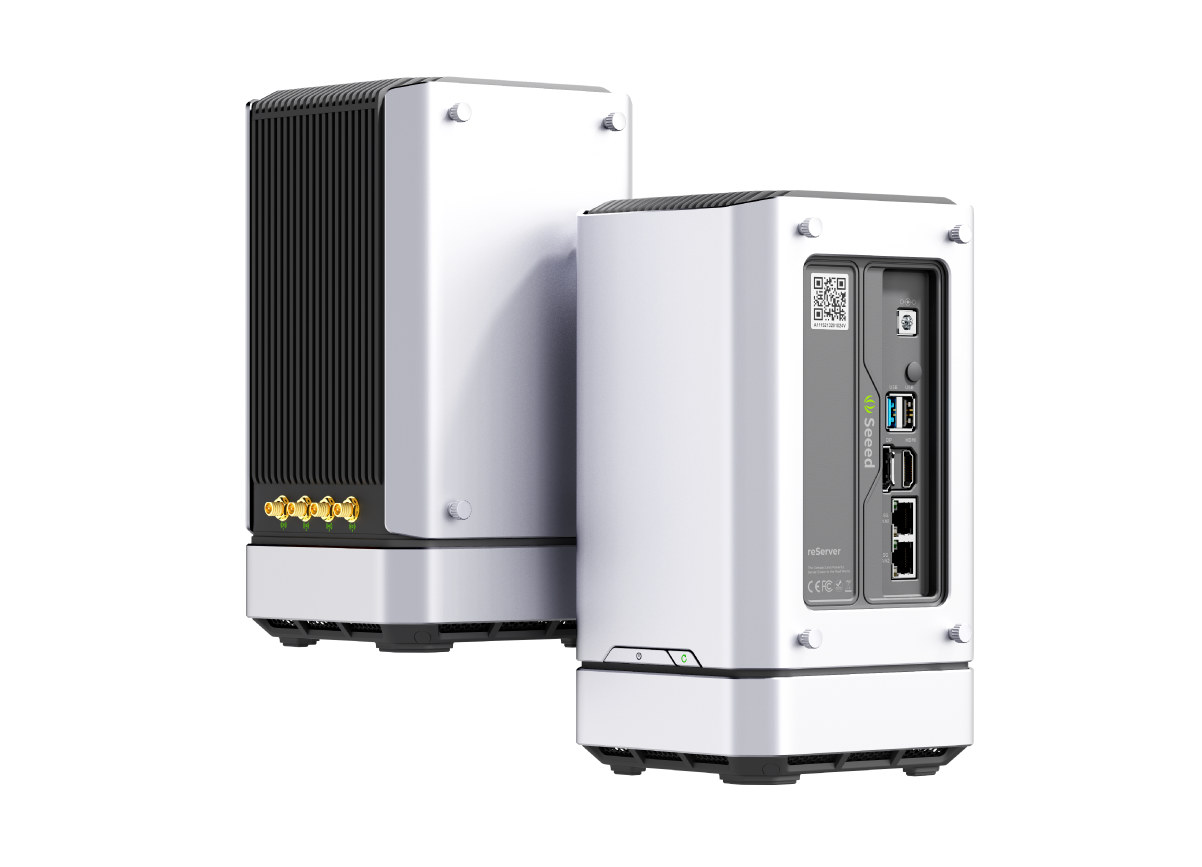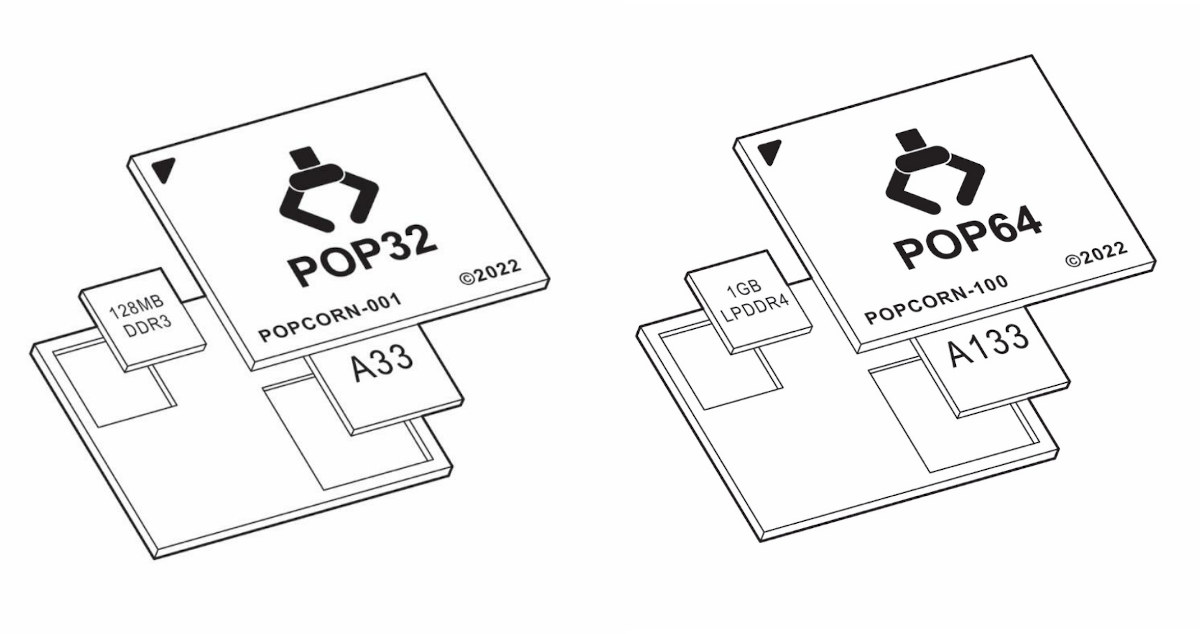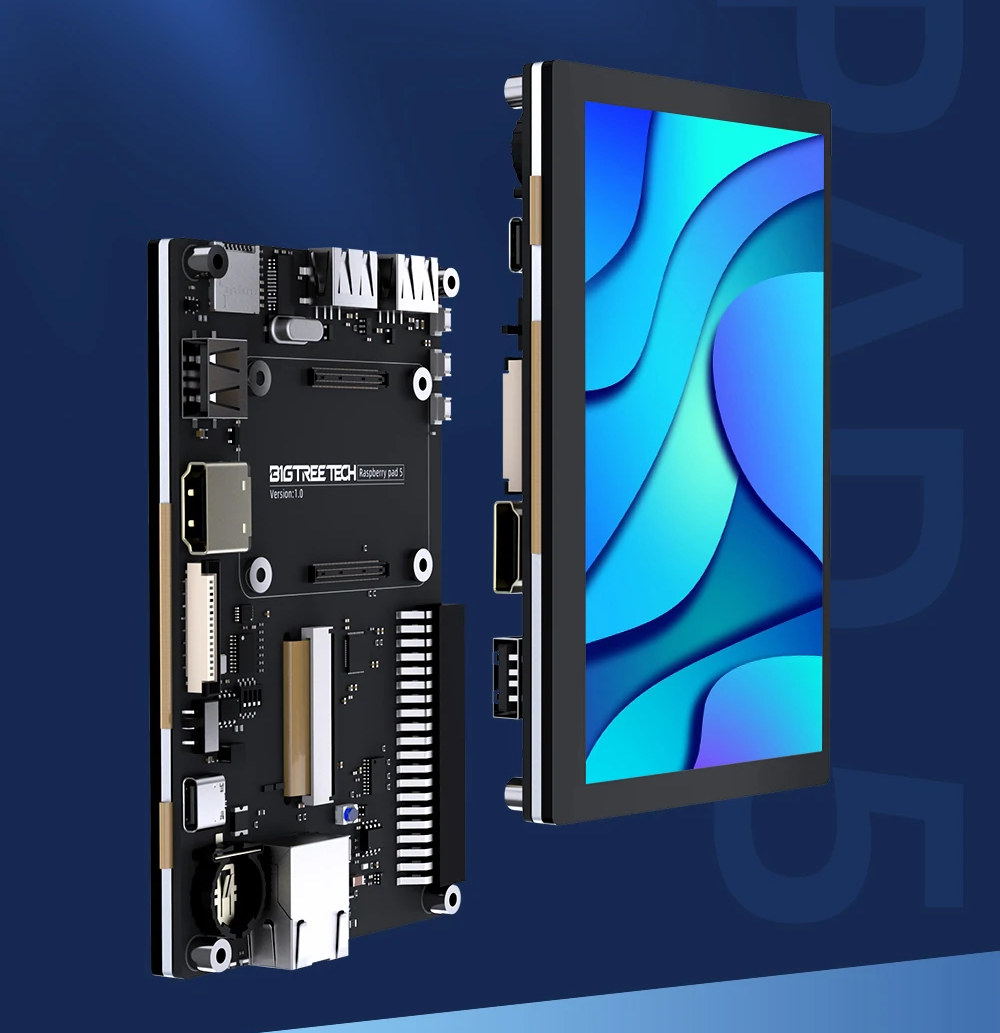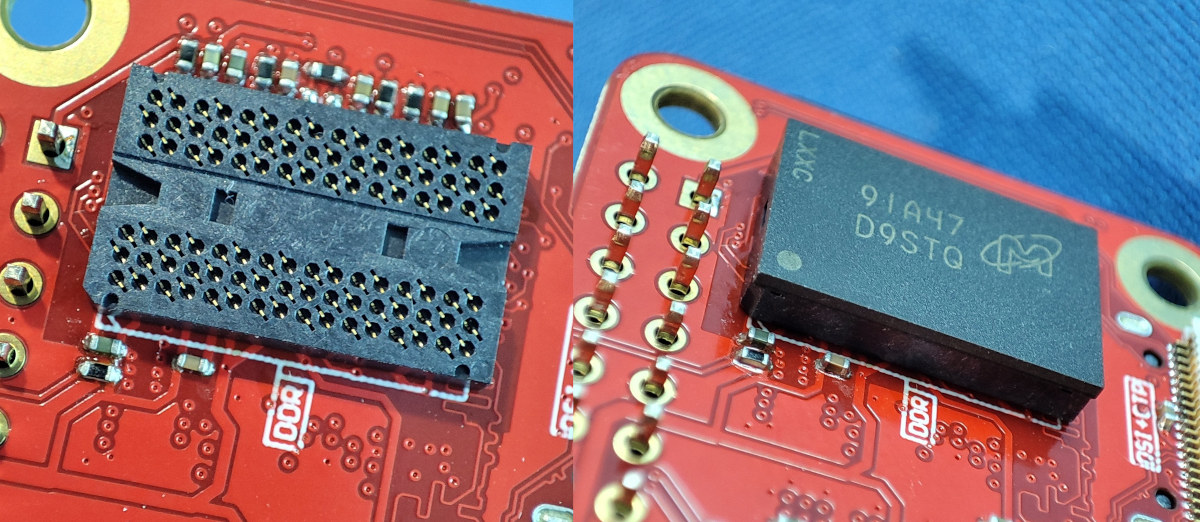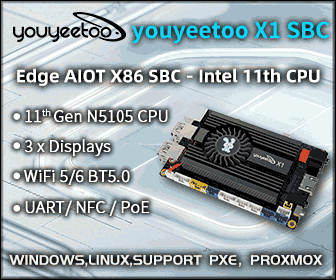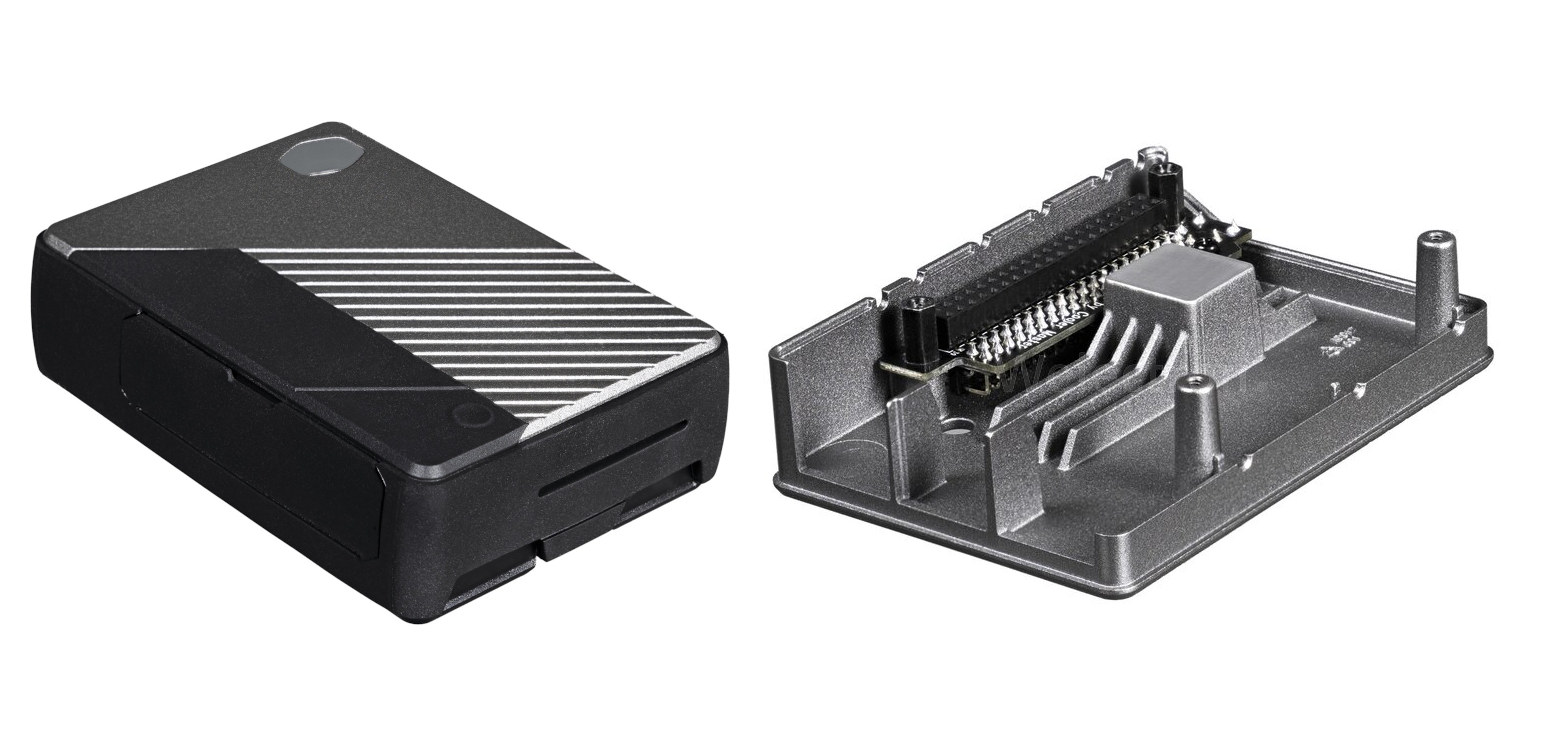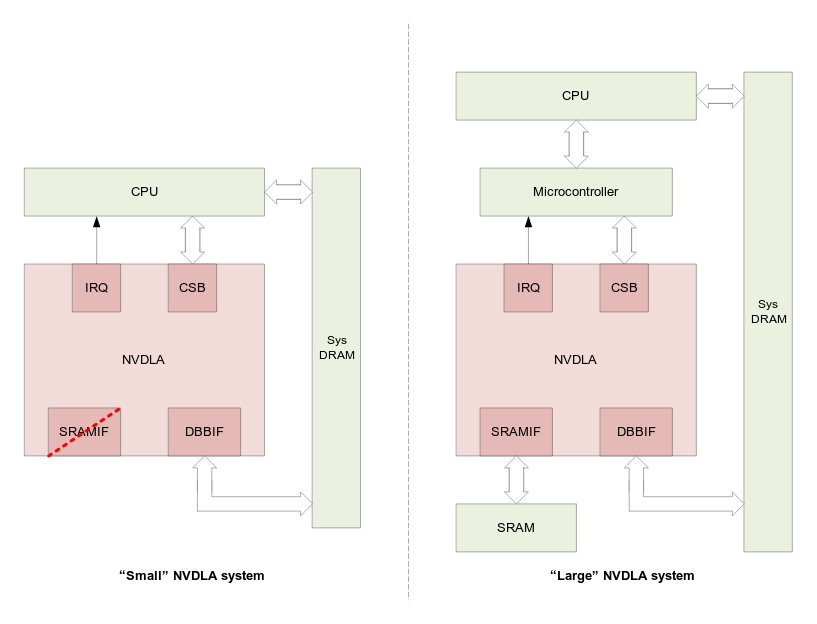reServer Jetson-50-1-H4 is an AI inference edge server powered by Jetson AGX Orin 64GB with up to 275 TOPS of AI performance, and based on the same form factor as Seeed Studio’s reServer 2-bay multimedia NAS introduced last year with an Intel Core Tiger Lake single board computer. The 12-core Arm server comes with 32GB LPDDR5, a 256GB NVMe SSD pre-loaded with the Jetpack SDK and the open-source Triton Inference server, two SATA bays for 2.5-inch and 3.5-inch drives, up to 10 Gbps Ethernet, dual 8K video output via HDMI and DisplayPort, USB 3.2 ports, and more. reServer Jetson-50-1-H4 (preliminary) specifications: SoM – Jetson AGX Orin module with CPU – 12-core Arm Cortex-A78AE v8.2 64-bit processor with 3MB L2 + 6MB L3 cache GPU / AI accelerators NVIDIA Ampere architecture with 2048 NVIDIA CUDA cores and 64 Tensor Cores @ 1.3 GHz DL Accelerator – 2x NVDLA v2.0 Vision Accelerator […]
QEMU 7.0 released with support for RISC-V KVM, Intel AMX, and more
QEMU (Quick EMUlator) is an open-source emulator used to run OS or programs on various architectures such as Arm, RISC-V, and many others when you don’t own specific hardware, or for quick testing. The developers have released QEMU 7.0 a few days ago with over 2500 commits from 225 developers. New features include support for RISC-V KVM and vector extensions, Intel AMX (Advanced Matrix Extension), improved flexibility for fleecing backups, various new features for Arm, and many more. QEMU 7.0 highlights listed by the developers: ACPI: support for logging guest events via ACPI ERST interface virtiofs: improved security label support block: improved flexibility for fleecing backups, including support for non-qcow2 images ARM: ‘virt’ board support for virtio-mem-pci, specifying guest CPU topology, and enabling PAuth when using KVM/hvf ARM: ‘xlnx-versal-virt’ board support for PMC SLCR and emulating the OSPI flash memory controller ARM: ‘xlnx-zynqmp’ now models the CRF and APU control […]
Ubuntu 22.04 LTS “Jammy Jellyfish” released
Canonical has just released Ubuntu 22.04 LTS “Jammy Jellyfish” right on schedule. The new version of the Linux operating system provides cloud confidential computing, a new real-time kernel for industrial applications, Arm optimization, support for Raspberry Pi SBCs, as well as support for enterprise Active Directory, PCI-DSS, HIPAA, FIPS, and FedRAMP compliance. Confidential Computing aims to improve data protection and privacy in public clouds without requiring any changes to existing application deployments, and Ubuntu 22.04 supports Azure Confidential VMs. Speaking about cloud computing, Canonical also says they optimized Ubuntu 22.04 LTS images for AWS Graviton for greater performance on Arm servers. The new real-time PREEMPT_RT kernel is currently in beta and available for both x86 and Aarch64 architectures. It is designed for telco (5G gateways) as well as other latency-sensitive applications such as industrial automation and robotics. Ubuntu 22.04 LTS is also the first long-term support release with Ubuntu Desktop […]
POP32 & POP64 SIPs combine Allwinner A33 and A133 with SDRAM into a single package
Kettlepop is a board based on Allwinner GR8 system-in-package (SiP) with an Allwinner R8/A13 Arm Cortex-A8 CPU and 256MB RAM, and itself a derivative of the CHIP Pro board from Next Thing Co that closed doors a few years ago. Source Parts has just posted an update explaining that the GR8 SiP is not available anymore, so they worked on their own SiPs: POP32 and POP64. POP32 combines an Allwinner A33 quad-core Cortex-A7 processor with 128MB DDR4, while POP64 features an Allwinner A133 quad-core Cortex-A53 processor with 1GB LPDDR4. POP32 system-in-package POP32 highlights: SoC – Allwinner A33 quad-core Arm Cortex-A7 processor with Arm Mali-400 MP2, 1080p60 H.264, VP8, MPEG 1/2/4, JPEG/MJPEG video decoding, 1080p60 H.264 video encoding Memory – Built-in 128MB DDR3 Peripherals from SoC Storage I/F – NAND flash, 3x SD/MMC Display – MIPI DSI, LVDS, RGB LCD up to 1280×800 resolution Camera I/F – Parallel camera interface up […]
Raspberry Pad 5 Raspberry Pi CM4 carrier board integrates 5-inch display for 3D printers
BIGTREETECH Raspberry Pad 5 is a carrier board for the Raspberry Pi CM4 module with a 5-inch 800×480 display and mainly designed as a control panel for 3D printers, but also usable for other HMI applications. The carrier board also exposes a 40-pin GPIO header, and offers Gigabit Ethernet, HDMI video output, a MIPI CSI port for a camera monitoring the prints, a USB Type-C port, as well as three USB 2.0 ports for further peripherals expansion. Raspberry Pad 5 specifications: Compatible with Raspberry Pi CM4 and CM4 Lite modules Storage – MicroSD card slot (for Raspberry Pi CM4 Lite) Display – 5-inch IPS display with a 5-point capacitive touchscreen, 800×480 resolution Video Output – HDMI port Camera -1x MIPI CSI interface for compatible cameras from Raspberry Pi, Arducam, etc… Networking – Gigabit Ethernet RJ45 port, optional WiFi 5 and Bluetooth 5.0 (on RPI CM4) USB – 3x USB 2.0 […]
BGA socket allows RAM upgrades on SBCs
In most cases, both the eMMC flash and RAM are soldered on single board computers, but we’ve previously boards with eMMC flash modules that allows to optionally add storage of various capacity and speed. But today I learned something similar exists for RAM chips with a socket that allows you to clip a BGA chip to change RAM capacity. The BGA socket is simply soldered on the board instead of the RAM chip itself, and as demonstrated on the MangoPi MQ Pro board, you could then insert the chip on the board instead of soldering it. Those are the specifications of the “DDR3x16-96” socket used above: Materials Socket base: LCP (liquid crystal polymers) Contacts: BeCu (Beryllium Copper), selective Au-Au flash over Ni plating Insulation resistance – 1000 MOhm or more at DC 100V Dielectric withstanding voltage – 100V AC for one minute Contact resistance – 50 mOhm max, at 10mA […]
Cooler Master Pi Case 40 V2 launched together with 3D printable assets
Cooler Master Pi Case 40 V2 case for Raspberry Pi 4 is the successor of the fanless Pi Case 40 metal enclosure launched in 2020 on Kickstarter. The company also offers 3D files for the case and accessories to expand its functionality. Cooler master Pi Case 40 V2 (MCM-PI400-MNNN-S01) specifications: Designed for Raspberry Pi 4 Model B Access to internal Raspberry Pi interfaces – 40-pin GPIO header, SD card, display, and camera I/F Misc – Remappable power button Dimensions – 96 x 68.2 x 27.3mm (excl. protrusions) or 28.58mm (incl. protrusions) Color(s) – Gun Metal Grey, Black Materials – Aluminum, Plastic, TPU The fanless enclosure ships with four modular mounting brackets, one Allen Key, two Thermal Pads, a 90° GPIO adapter, an ON/OFF switch, and a 40-pin jumper cable. It will not work with most/any other board compatible with Raspberry Pi 4 due to the different positions of the CPU. […]
NVIDIA NVDLA AI accelerator driver submitted to mainline Linux
A large patchset has been submitted to mainline Linux for NVIDIA NVDLA AI accelerator Direct Rendering Manager (DRM) driver, accompanied by an open-source user mode driver. The NVDLA (NVIDIA Deep Learning Accelerator) can be found in recent Jetson modules such as Jetson AGX Xavier and Jetson AGX Orin, and since NVDLA was made open-source hardware in 2017, it can also be integrated into third-party SoCs such as StarFive JH7100 Vision SoC and Allwinner V831 processor. I actually assumed everything was open-source already since we were told that NVDLA was a “complete solution with Verilog and C-model for the chip, Linux drivers, test suites, kernel- and user-mode software, and software development tools all available on Github’s NVDLA account.” and the inference compiler was open-sourced in September 2019. But apparently not, as developer Cai Huoqing submitted a patchset with 23 files changed, 13243 insertions, and the following short description: The NVIDIA Deep […]


